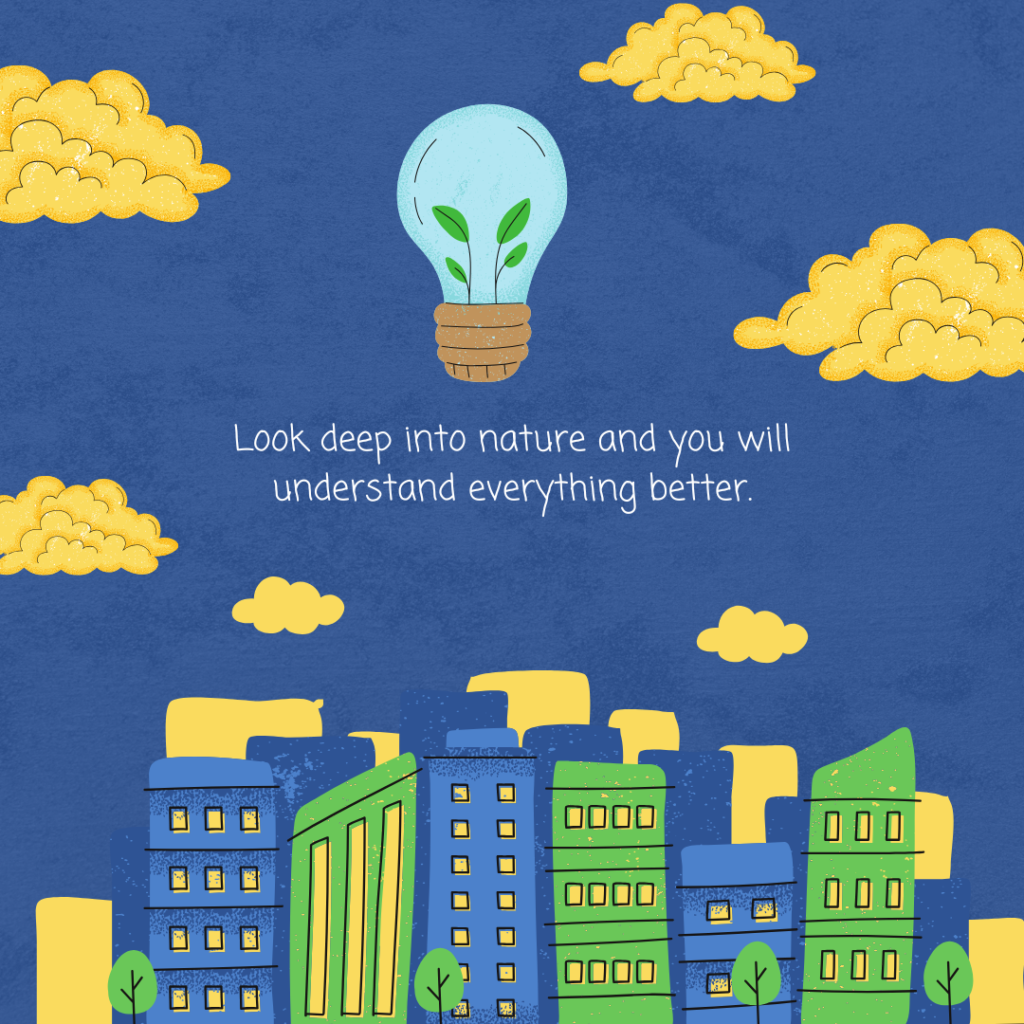
Renewable Energy: Why is it Crucial for the Modern World?
Introduction: Renewable Energy – A Necessity for the Modern World
Renewable energy has been derived from naturally replenishing sources. It includes sources such as solar, wind, hydro, geothermal, and biomass, etc. It has emerged as the cornerstone for a sustainable future. Unlike fossil fuels, which are finite and environmentally damaging, renewable energy sources offer a clean, abundant and long-term solution to the world’s growing energy demands.
In the 21st century, the global energy crisis and the escalating impacts of climate change have underscored the urgent need for a transition to sustainable energy systems. Rising carbon emissions, resource depletion and geopolitical tensions over fossil fuel dependency threaten both environmental and economic stability.
Thus, renewable energy is not just an alternative but its adoption can mitigate climate change, enhance energy security and drive long-term economic growth, making it crucial for global progress.
The Energy Challenge in the Modern World
The modern world is experiencing an unprecedented rise in energy demand due to rapid industrialization, urbanization and population growth. As economies expand and technological advancements drive higher energy consumption, the reliance on traditional fossil fuels has become increasingly unsustainable.
Fossil fuels, which have powered human progress for centuries, pose serious challenges. They are finite resources, leading to energy insecurity and price volatility. Moreover, their extraction and consumption contribute to environmental degradation, air pollution, and climate change through excessive greenhouse gas emissions. The consequences—rising global temperatures, extreme weather events, and ecological imbalances—threaten the stability of our planet.
In this context, renewable energy emerges as a crucial solution. With its infinite supply and minimal environmental impact, it offers a path toward energy security, economic stability, and ecological sustainability. Transitioning to clean energy sources is not just an environmental imperative but a necessity for global progress.

Environmental Benefits of Renewable Energy
1. Renewable Energy: A Key Weapon Against Carbon Emissions
Renewable energy is a powerful catalyst in the fight against carbon emissions. Hence it makes it a key solution in the fight against climate change. Unlike fossil fuels, which release vast amounts of carbon dioxide and other greenhouse gases, renewable sources such as solar, wind, and hydro produce little to no emissions. By replacing conventional energy with clean alternatives, nations can significantly cut their carbon footprint and slow global warming.
2. Clean Energy Reduces Air and Water Pollution
Beyond climate benefits, renewable energy helps combat air and water pollution too. Fossil fuel combustion releases harmful pollutants like sulphur dioxide, nitrogen oxides, and particulate matter, leading to respiratory diseases and environmental damage. Renewable sources, in contrast, generate power without polluting the air or contaminating water bodies.
3. Supporting Biodiversity Through Sustainable Energy Solutions
Additionally, renewable energy supports biodiversity and ecosystems by reducing habitat destruction caused by mining and drilling. Sustainable energy projects, if properly planned, can minimize ecological disruption, ensuring a healthier environment for both humans and wildlife.
Economic and Social Advantages of Renewable Energy
1. Renewable Energy Drives Global Job Creation and Economic Growth
The transition to renewable energy offers significant economic benefits, particularly in job creation. Sectors such as solar panel manufacturing, wind turbine installation, and bioenergy production can generate millions of jobs worldwide. Unlike fossil fuel industries, which are often centralized and capital-intensive, renewable energy fosters diverse employment opportunities across various skill levels, boosting local economies.
2. Long-Term Cost Savings with Clean and Stable Energy Sources
Additionally, renewable energy leads to long-term cost savings. While the initial investment in infrastructure can be high, sources like sunlight, wind, and water are free, eliminating fuel costs. In contrast, fossil fuel prices are highly volatile, subject to geopolitical tensions and market fluctuations, creating economic instability.
3. Clean Energy Improves Public Health and Reduces Healthcare Costs
Another key advantage is improved public health. Fossil fuel combustion releases toxic pollutants that contribute to respiratory diseases, heart conditions, and premature deaths. By replacing coal, oil, and gas with clean energy sources, air quality improves, reducing health risks and healthcare costs.
4. Empowering Communities Through Sustainable and Local Energy Solutions
Renewable energy also empowers communities by creating sustainable livelihoods. Localized energy production allows small businesses and households to generate their own power, fostering energy independence. With job opportunities in solar installation, wind maintenance, and bioenergy production, communities can achieve long-term economic stability while contributing to a cleaner and healthier environment. As countries invest in clean energy, they position themselves as leaders in the global green economy, ensuring long-term economic growth and stability.
Energy Security and Independence
Renewable energy enhances energy security by reducing dependence on imported fossil fuels, particularly for nations with limited natural resources. Many countries like Saudi Arabia, Iraq, Russia rely heavily on oil, coal, and gas imports, making them vulnerable to price fluctuations, supply chain disruptions, and geopolitical tensions. By harnessing domestic renewable sources such as solar, wind, and hydro, nations can achieve greater energy independence, stabilizing their economies and reducing reliance on volatile global markets.
Decentralized renewable energy boosts resilience during crises by enabling local power generation through solar panels, wind farms, and microgrids. Unlike centralized fossil fuel systems, renewables minimize supply disruptions from conflicts or disasters. This approach enhances energy security, supports remote communities, and fosters a more stable, self-reliant energy future.
Challenges in Transitioning to Renewables
Transitioning to renewable energy presents key challenges despite its benefits. High initial costs for solar farms, wind turbines, and hydro plants can be a barrier, especially for developing nations. Additionally, intermittency issues in solar and wind power require advanced storage solutions like batteries and smart grids for stability. Infrastructure limitations further hinder progress, as outdated grids and insufficient investment slow renewable integration. Overcoming these obstacles requires strong policies, global cooperation, and financial incentives. Governments and industries must invest in research, enhance storage technology, and modernize grids to accelerate the global shift toward sustainable and reliable clean energy.
Case Studies and Success Stories
Several countries have successfully adopted renewable energy, setting global benchmarks for sustainability. Iceland meets nearly 100% of its electricity needs through geothermal and hydro power, while Germany leads in solar and wind energy with progressive policies. India’s Bhadla Solar Park, among the world’s largest, reflects its commitment to clean energy, while Kenya’s Lake Turkana Wind Project powers millions, making it Africa’s renewable hub. These success stories prove that with the right policies, investments, and innovations, a global shift to renewable energy is possible. They serve as blueprints for nations aiming for a cleaner, more sustainable future.
Future of Renewable Energy
The future of renewable energy is driven by technological advancements. Battery storage innovations enhance efficiency in managing solar and wind power, while hydrogen fuel cells offer a clean alternative for heavy industries. Smart grids revolutionize energy distribution, ensuring seamless integration of diverse sources.
Global initiatives like net-zero targets by 2050 and the Paris Agreement push nations to accelerate clean energy adoption. A future powered predominantly by renewables will reduce fossil fuel dependence, curb environmental degradation, and promote sustainable growth. This transition promises a cleaner, healthier planet, securing a better future for generations to come.
Conclusion
Renewable energy is essential for ensuring environmental sustainability, economic stability, and social progress. By reducing carbon emissions, creating jobs, and enhancing energy security, it offers a viable solution to the global energy crisis and climate change. The transition to clean energy is not just a necessity but an opportunity to build a more resilient and equitable world.
Governments, businesses, and individuals must take proactive steps to accelerate this shift—through investments, policy reforms, and sustainable choices. Every action counts in shaping a cleaner future.
Renewable energy is not just an option—it is the way forward for a brighter, cleaner, and more secure future.

4 Comments